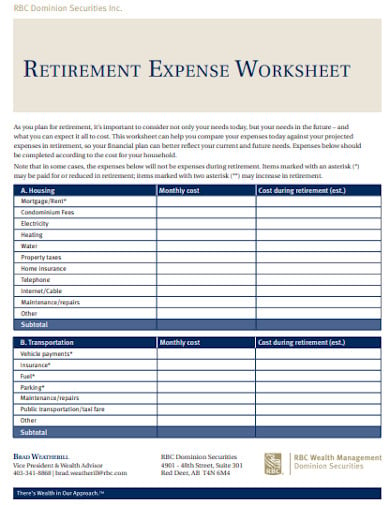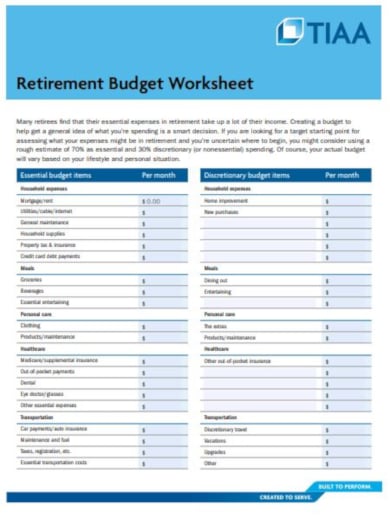

The percentages are the results of cohort average expenditures by average total income. Aggregated spending amounts were then divided by the total reported expenditures to derive the average expenditures for each cohort. From the survey, reported household income and expenditures were aggregated in the 5 categories. Data are based on the 2019 Consumer Expenditure Survey by the Bureau of Labor Statistics (BLS). Note: The table illustrates the percentage of total income the average household spends on food, housing (including utilities), transportation, entertainment and health care. Now that you're retired, it might be a great time to do some fun things like taking cooking lessons or entertaining for friends and family. If you are considering buying a new or used car, add that expense too.įood: Although you may not be eating out at lunch with colleagues, overall expenditures on food will likely remain constant. Most people don't retire to sit around the house, so remember to include the cost of gas or public transportation for trips to activities, as well as vehicle maintenance expenses. Transportation: No longer having commuting costs is a big bonus of retiring, but your transportation costs won't drop to zero. So, if your home is worth $400,000, then budget approximately $4,000 per year for standard repairs, general upkeep, or accessibility upgrades. A good rule is to budget at least 1 % of your home's value for annual maintenance. Housing: If your home is paid for, good for you! But don't forget to add utilities, maintenance, and possibly larger home repairs. Even if you're covered by Medicare and an insurance plan from your former employer, supplemental premiums and out-of-pocket costs continue to rise. Health care: Planning for health care costs can be especially daunting with estimated costs for an average 65-year-old couple retiring in 2020 hitting a total of $295,000 (in today's dollars) over their entire retirement period. Health, comfort, and security are among life's most important priorities, so you'll want to make health care, housing, transportation, and food your budget priorities. Essential expensesĬover essentials first.

Lastly, categorize expenses into "essential" and "discretionary" (see below). Then look through your past bills and online bank statements to identify work-related expenses that you may no longer have to pay now that you're retired. Next, identify your ongoing monthly bills and determine whether you need to continue all these services. If you use credit cards, go online and look at year-end summaries to see where you spent the most money last year. To start, tabulate your average monthly expenses like cable, telephone, and electric bills and know how much money is coming in versus going out. You need to know the details of your recent spending patterns, and determine whether your overall spending will go up, go down, or stay the same in retirement. Plan ahead and think about the life you want to live in retirement, based on what you can afford. A good practice is to match these nice-to-have expenses with income from individual retirement accounts (IRAs) and other tax-deferred retirement savings accounts. Then create your discretionary budget by focusing on categories of spending-such as travel, gifting, and entertainment-rather than trying to account for every dollar you'll spend. (See the "Essential expenses" section below.) Start by understanding your essential (must-have) expenses and how you can use guaranteed sources of income, like Social Security, pensions, and annuities, to pay for them. That's often because they worry about the details of their discretionary (nice-to-have) spending instead of looking at the big picture. Think big pictureįor many people, the budgeting process stalls before it really gets started. If you're ready to begin putting together a retirement budget, here are some tips to help. Along with an income plan that can deliver a steady "retirement paycheck" and an investing strategy that allows a portion of your nest egg the chance to grow, a realistic budget-based on all the sources of income you have coming every month-is an essential building block of retirement. Making a budget may not be the first thing you look forward to in retirement, but it's one of the most important things to do to start your retirement on the right path. Consider consolidating accounts at a trusted provider.Limit withdrawals from retirement savings accounts to 4%–5% in your first year of retirement,then adjust for inflation in subsequent years.



 0 kommentar(er)
0 kommentar(er)
